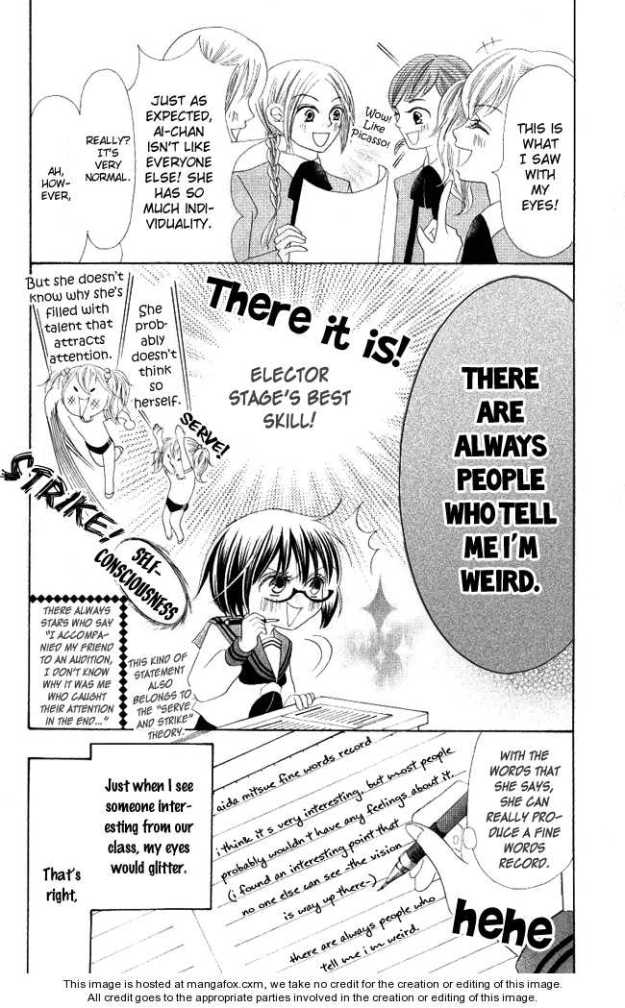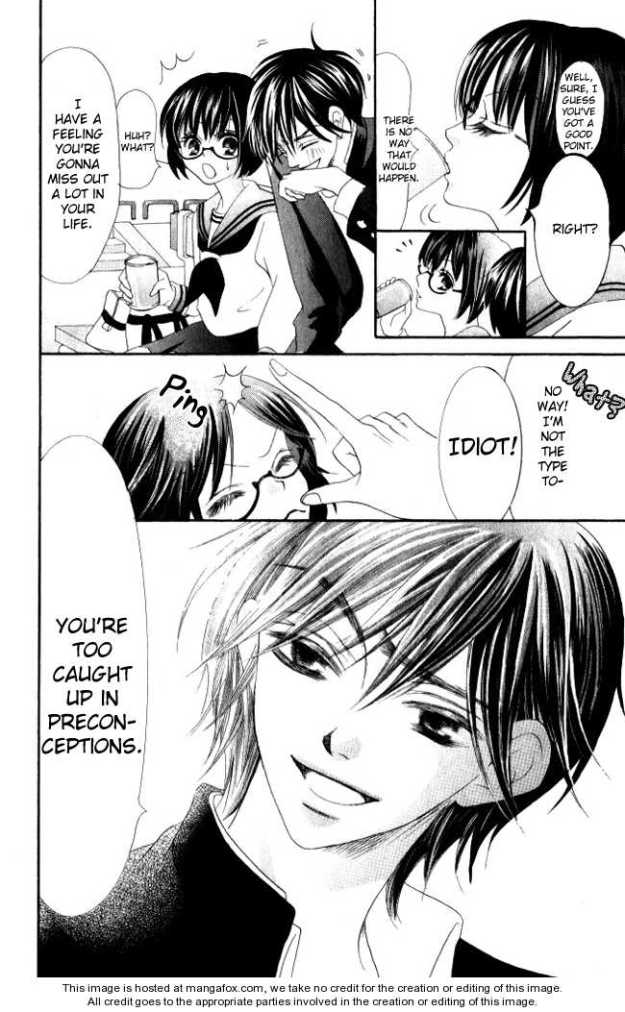My local bookstore had the second volume of Warau Kanako-sama on the shelf a couple weeks back, and seeing it actually made me excited to read a new manga for the first time in quite a while. A lot of what I’ve written here in the past is strictly negative criticism, so I figured I would take the opportunity to offer some rare praise for something I actually like.
Warau Kanako-sama probably started as a one-shot, the first chapter is neatly self-contained and each new chapter is almost entirely freestanding. The main character, the titular Kanako, is a nerdy junior high student who acts like an amateur anthropologist, studying her classmates. She keeps extensive notes detailing their foibles, their relationships, and what kind of ‘character’ she thinks they’re attempting to portray- the artsy girl, Mrs. perfect student council president, etc. Of course, she claims she isn’t a character at all, she’s part of the audience, the perfect unbiased observer.
What I like about the series is how flimsy Kanako’s archetypes always turn out to be. People really can’t be categorized so easily, and that includes our ‘perfect observer’, who is inevitably drawn into her classmates’ conflicts. Note how her lack of self-awareness is highlighted above: her metaphor for Ai’s self-absorption is perfectly mirrored by her own behavior. Once she’s abandoned her perfect observer role and intervened, Kanako’s observations allow her to manipulate her classmates by predicting their behavior, but her projections always fall a crucial step short. In a typical chapter, she helps the unpopular girl unseat the evil class queen (it’s all very Mean Girls-esque). But having advanced to the top of the pecking order, the formerly unpopular girl finds herself becoming just as evil as the tyrant she replaced.
To Kanako, this all makes perfect sense. The unpopular girl simply assumed the queen’s character, so her behavior should be the same, since people are really just the roles they make themselves play. But as it turns out, the new queen realizes the role doesn’t suit her, and rejects it, telling the truth even though it means she’ll lose her new popularity (or so it seems, she actually ends having her cake and eating it too). Kanako’s observations can only tell her about the masks people wear, not what’s underneath.
Hey, when was the last time you saw a character in a manga quote Nietzsche? That’s not to claim Kanako-sama is an especially intellectual read (I’m told that even Sasha Grey likes to quote Nietzsche); it’s not. It’s also not deep plot-wise, and apparently the third volume will be the last, so it won’t be a very long read either. And I don’t much care for the other main character, a male friend from Kanako’s old class who shows up in most chapters to act as a deus ex machina and explain the subtext for readers too stupid to figure it out for themselves.
That said, I think the overall message of the story is one that badly needs telling these days, when so many characters in manga and anime are so thin and stereotyped. Good fiction should relate to the human experience; that doesn’t mean it always has to be realistic, but as a rule people in real life are more complicated than the roles they play. A lot of the shitty anime we bash here is defined by its boring, flat, “moe” characters: cute little sisters, pervy best friends, clumsy fuck-ups with cutesy catchphrases, etc. What they’re missing is a little of the humanity that Warau Kanako-sama gives its characters, some of the free will that lets them grow in believable ways.
Anyway, since it seemed relevant to the title of the blog, I thought I’d try to get the word out. You can read Warau Kanako-sama on the usual websites like everyone else, or plop down cash for it on paper like a sucker (the English title is The Secret Notes of Lady Kanako, the third volume is due out from Tokyopop later this year, and the translation and editing are pretty good). Either way, enjoy it in good health, fellow nerds.







Could you have picked bigger pictures?!
Pingback: Nietzsche em mangá e HQ « O Mundo de Giovana
Absolutely agreed. The Tatami Galaxy gave a similar message, and I loved it for it.
What’s impressive about the Nietzsche quotation is not so much the quotations itself, but the fact that it was an accurate interpretation. After all, Nietzsche is famous for being one of the most oft misinterpreted philosophers. Seeing something quote him right is pretty refreshing.